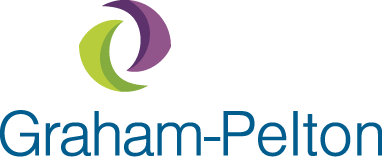
“We did a wealth screening. Now what?”
“I need more prospects. How can I discover new leads?”
“Where has my prospect made their largest gift? Have they ever named anything?”
“My prospect just gave through a family foundation! What does that mean for their capacity and interests?”
If you’ve ever asked yourself any of the above questions, but do not know how to find the answers—or have time to search for them—you may benefit from a prospect researcher. From big teams to small, prospect research plays a vital role in fundraising progress and success. Even if you can’t employ a full-time researcher, ensuring you have someone on staff who has some proficiency and can dedicate some time to research each week, if only a few hours, will help your ongoing efforts.
While you may inherently know the value of resourcing prospect research, it may be difficult to make the case for it among tightening budgets. However, this investment is well worth it, as it often uncovers inclination and capacity that might otherwise have been unknown.
As you make your case, here are three reasons to promote adding a prospect researcher to your team.
1. Build the pipeline
Organizations must actively and consistently develop a pipeline of major gift prospects. Too often, organizations rely on the same donors time and again for major gifts without expanding their pipeline. Dedicating time to prospecting is critical to expanding your pool of potential donors. Prospecting can take a variety of forms and strategies, so having someone who has the skills to quickly qualify individuals for capacity and aligned interests will make a big difference in your fundraising efforts. A prospect researcher can steadily fill your pipeline with potential prospects for major gift officers to qualify so that prospects are always moving through the donor cycle.
2. Determine ask amounts
I recently asked a fundraiser how they determine ask amounts, and the response was “go fish.” If this is also your approach, you are not alone. Many organizations do not apply an informed, systematic approach to assigning ask amounts for potential donors due to lack of research support or knowledge, which might result in over-asking and offending a potential donor or, alternatively, leaving money on the table. Investing in a prospect researcher can refine the solicitation strategy and ensure that it is appropriate for the prospective donor. Researchers not only have the expertise in determining capacity ratings (PSA: always check with your researcher to confirm your organization’s definition of a rating), but have the skills to find various wealth indicators including:
-
- compensation (for certain roles)
- philanthropy
- insider holdings (for certain roles)
- additional properties
- details on family foundations
Including your researcher in prospect strategy discussions may help raise your fundraiser’s sights in addition to the donor’s sights.
3. Identify interests
It is simple: detailed and timely contact reports from fundraisers are critical. But, donors don’t always divulge the details you want. With the help of prospect research, your fundraisers will be better equipped to ask the right questions to better engage the donor or prospect. Additionally, research results can lead to more strategic or creative proposals. Has the donor established a scholarship at their alma mater? Perhaps financial aid will inspire them at their child’s school. Does the donor sit on the Board of their local gardening club? Perhaps a proposal for landscaping will be of interest. Is the donor a community volunteer? Perhaps a program highlighting public service will excite them. Research can address many of these questions and inform a potential donor’s overall engagement strategy with an organization.
Although prospect research cannot uncover all the answers, organizations that invest in the work now will be better off in the future. By investing in prospect research, an organization will be able to continuously build the pipeline of prospective donors, solicit potential donors appropriately, and positively impact engagement strategies for donors. Organizations that choose to dedicate staff to prospect research and prioritize the work now will give fundraising staff momentum for their organizations and pay off in the long term.

